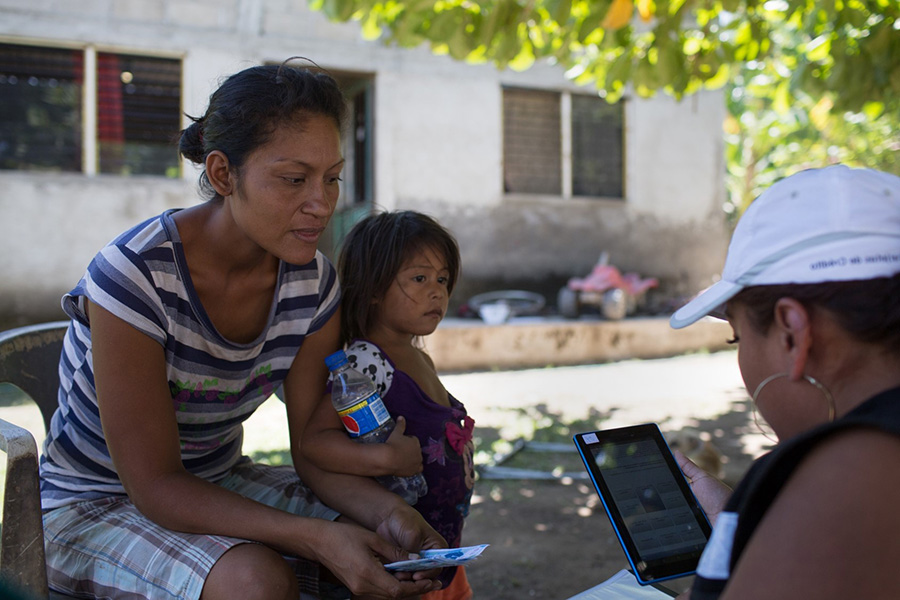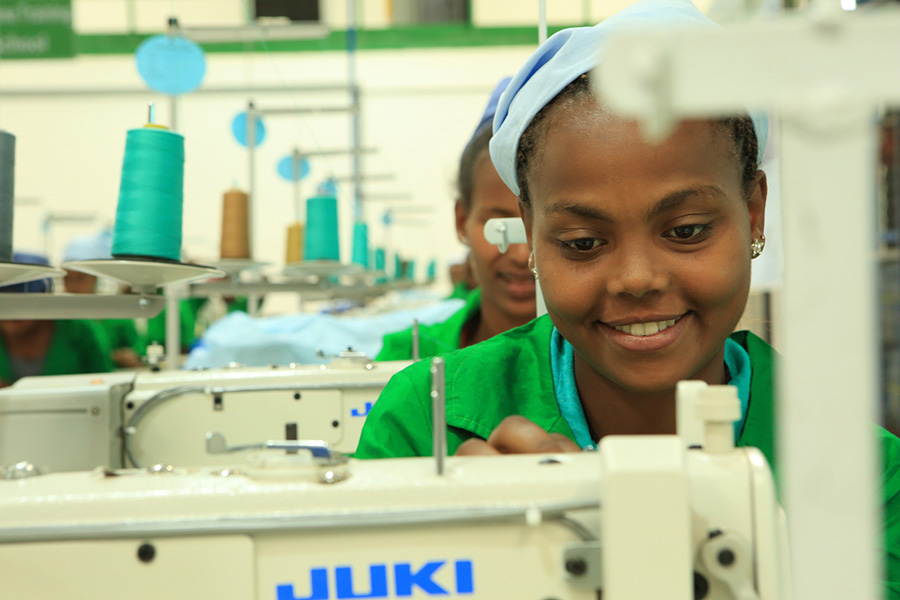DEVELOPMENTS
How Can Digital Financial Services be Utilised in Response to COVID-19?
Jul 17, 2020
The COVID-19 pandemic has profoundly disrupted the provision of financial services worldwide, with many regular practices now impossible. Consumer banks have closed as part of lockdown measures, and where banks are still operational, distancing measures have constrained services and diminished provider contact. Travel restrictions in many countries have also limited people’s and businesses’ access to financial service providers.
In recent years, consumer preferences and expectations have shifted toward digital financial services (DFS), and providers have responded accordingly. Donors, too, have followed this trend, seeing DFS as powerful tools to reach the most vulnerable and better include currently unbanked or underbanked populations.
Devastating as the pandemic is, the conditions it imposes actually present opportunities to expand DFS in fundamental ways that can close service gaps and at the same time bolster the resilience of vulnerable people. At DAI, our COVID-19 response includes scaling up DFS interventions across a range of themes.

The Prosperity Fund Mexico Financial Services Programme aims to create a more inclusive and competitive financial services sector accessible to all segments of Mexican society and new market entrants. Photo: Mexico Financial Services Programme.
Getting Creative with Digital Solutions
Using financial technology in developing countries enables agile and novel approaches to be adapted quickly and at scale, ensuring those who are most vulnerable can be rapidly supported. The Prosperity Fund Mexico Financial Services (MFS) Programme, for example, funded by the U.K. Foreign, Commonwealth & Development Office (FCDO), recently launched the Caravana Fintech initiative to increase the adoption of innovative solutions by underbanked and unbanked people. Caravana, which was launched virtually at the Fintech Remote Summit, is targeted at financially excluded micro, small, and medium-sized enterprises, particularly those affected by COVID-19.
In Jordan and Egypt, the Arab Women’s Enterprise Fund (AWEF), funded by the FCDO, is developing microloan products with digital payment service providers and microfinance institutions (MFIs) to enable digitisation of microloan servicing. In the face of COVID-19, the Jordanian Government decided to provide financial aid to 200,000 mainly unbanked Jordanian workers, mostly shift workers and low-income temporary workers affected by the lockdown. It chose the National Aid Fund (NAF) to disburse the aid because the NAF has been working with AWEF and its partner Dinarak for 14 months to serve regular beneficiaries using “mobile wallets.” NAF is now using these digital wallets to afford 200,000 people ready access to financial support.

File photo from Arab Women’s Enterprise Fund (AWEF), an FCDO project that supports women's integration into the economy.
The new phase of FCDO’s Financial Sector Deepening Moçambique (FSDMoç) initiative will continue the project’s engagement with payment service providers through the “regulatory sandbox” established under the project. Regulatory sandboxes are frameworks that allow innovative firms to test products with regulatory supervision; the approach taken by FSDMoç involves working with payment service providers to develop shock payment and remittance applications in response to COVID-19.
Taking Full Advantage of Digital Platforms
Digital platforms are an ideal mechanism for delivering preventive and other messaging around COVID-19 (although, as the International Monetary Fund points out, this leaves challenges for the digitally excluded). For example, MFS is providing digital financial, hygiene, and sanitation education to vulnerable groups in Mexico, with a focus on women-owned microbusinesses receiving government payments. To ensure these informal enterprises stay viable during the crisis, MFS is providing support to help them manage cashflows and adopt sanitary protocols that will allow them to keep operating while reducing the risk of contagion to their family, employees, and clients. In Mozambique, similarly, vulnerable SMEs are receiving financial and health education support through FSDMoç’s digital partnerships with government ministries, trade associations, and the tech community.
On the supply side, FCDO’s Private Enterprise Programme Ethiopia (PEPE) is working with COVID-stricken financial institutions on how to manage nonperforming loans, in part through digital training modules designed to improve operating performance and mitigate COVID-19’s impact on downstream SMEs.

File photo of PEPE, an FCDO Ethiopia project that supports small firms.
Banking That Includes the Vulnerable
The pandemic has created widespread economic disruption, but research shows that economy-wide restrictions have a disproportionate impact on the poorest—those without reliable sources of income or access to credit and savings. Reducing access to financial services creates additional strain and increases the need for agent banking networks that provide services on behalf of financial institutions, particularly in rural areas.
FCDO’s Strengthening Host and Refugee Populations in Ethiopia (SHARPE) project is preparing to work with a financial service provider and an MFI to expand DFS to underserved, refugee-hosting communities through the financial agent model. By developing an agent network and expanding the number of shops and businesses that accept digital payments, SHARPE will facilitate the expansion of DFS into financially underserved regions—critical at a time where alternatives are needed to in-person banking that requires travel.
Through AWEF, DAI helped to pilot and scale a female agent model to promote the uptake of e-wallets for digital payments. As a result of AWEF’s partnership with Dinarak in Jordan, Dinarak has been able to work flexibly with regulators to improve and expand the use of agent-marketed products and services that help build businesses and in turn support economic and social resilience in the face of COVID-19.
Advocating for Policy Change
With the uncertainty of COVID-19 comes the need for adaptive governance, and for a regulatory environment conducive to development of DFS. The World Bank identifies suitable legal and regulatory frameworks as one of the keys to advancing access to payment services.
To get the right frameworks in place, projects may need an advocacy component. AWEF, for example, collaborated with the Bank of Palestine to advocate the relaxation of regulations restricting access to current bank accounts for people without formal employment contracts, many of whom are low-income earners. Following a successful pilot, the Palestinian Monetary Authority passed regulations that require banks to offer current accounts to low-income earners. These “financial inclusion” accounts are now proving to be important catalysts for financial and social inclusion. In response to the COVID-19 crisis, the Ministry of Social Development aims to provide financial support to families that have lost their source of income using these very accounts.

Majority of rural Mozambicans don't have access to financial institutions. Photo: USAID Mozambique SPEED.
Regulatory engagement is also central to FSDMoç. With the advent of COVID-19, the team has advocated for regulatory measures that stimulate the use of digital channels for payments and worked to improve regulations that will allow greater use of digital platforms and electronic payments. FSDMoç is also arguing for digital “shock payments” to vulnerable groups to mitigate the impact of COVID-19, and encouragingly the Central Bank of Mozambique has now introduced temporary measures to support such people.
In Mozambique and elsewhere, mitigating the immediate impact of COVID-19—especially on those who stand to suffer the most—has been our first priority. But as we look to seize the opportunities for financial inclusion afforded by the pandemic, we will seek to develop longer-term, more sustainable DFS solutions.